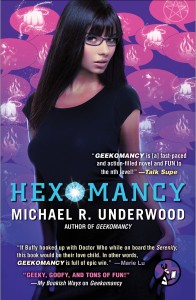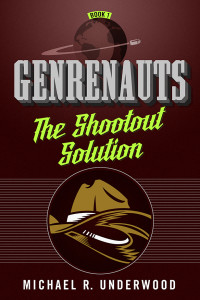So, this article about MFA programs has been going around for the last couple of days.
Unsurprisingly, the ever-thoughtful, ever-incisive hilarious Chuck Wendig has a point-by-point response which is dead-on (standard heads-up: Chuck is virtuoso of inventive swearing).
So rather than add my own point-by-point response, I want to take the conversation in a bit of a different direction, which is to say toward genre fiction.
The State of the Field
This whole article and the discussion around it reminds me of how poorly-served I think a lot of genre writers are vis a vis the MFA establishment in the USA. There are some MFA programs that are more oriented toward commercial fiction, like Seton Hill and USC, and some genre-friendly programs with SF/F writers on-staff like NC State, Temple, and Stonecoast (and there may be some others with Crime or Romance writers), but as recently as 2011, when I was looking at MFA programs, the schools listed above seemed to be pretty much the extent of places where a SF/F fiction writer could go and expect to not just be tolerated, but to be at least marginally well-served – with instructors qualified to assist the writer in becoming better in their chosen genre. When I applied to MFA programs, I got zero feedback as to why. No ‘we had to many genre fiction writers apply this year,’ no ‘your writing sample wasn’t quite up to snuff because <insert craft element>. Just a form rejection. Alas.
So when I sold Geekomancy the next year, I didn’t bother applying again to programs. I have a career in writing, I can share my knowledge through classes offered on the web, and I have the skills to sell stories and novels to professional markets.
Which is annoying, because I *really like* teaching (I’ve taught creative writing, tango, web design, public speaking, and historical martial arts), and I especially love talking shop and sharing knowledge about writing and the business of writing.
Word on the net and in the business is that for most MFA programs, genre fiction is at best an also-ran, at worst an outcast forbidden style. And that seems silly, given how many writers want to specialize in these genres, and how much money those genres make in the industry. So many MFA programs seem to be designed to very specifically train writers to become teachers at MFA programs, to just replicate across the literary fiction landscape. Except that just like almost everywhere else in academia, there are nowhere near enough jobs for the # of MFAs granted. So an MFA can be a teaching credential, but it’s often more a chance to spend two years focusing on craft. And that’s cool.
Unless you’re a genre writer interested in writing commercial fiction as a career.
So What?
Here’s the fun part.
One of my ‘If I Had All Of The Money’ dreams would be to found and endow a brand-new, world-class Genre Fiction MFA program, with faculty in Crime, Romance, SF, Fantasy, etc – adult and YA. The program would focus exclusively on genre fiction, and whwre most MFA programs do their cross-training between fiction and poetry, or fiction and memoir, this program would cross-train between fiction genres – since those three main genres cross over so much as-is, and current publishing trends are inviting that hybridization.
Some of the faculty would be chosen as much if not more for their business acumen as for their writing experience – their chairs would be for that business knowledge. And as a result, my dream MFA program would have a strong professional development/business knowledge component. Every MFA that graduates from my program would have training in pitching a book, participating in panels, hand-selling in a convention environment, writing query letters & synopsis, self-publishing skills (art direction, hiring freelancers, etc.) social media skills, as well as managing their writing as a business (taxes, expenses, budgeting). You know, skills a professional writer needs to prosper.
I love Clarion West. It taught me a ton about writing. But CW is not a be-all-end-all writing and professional development course. It can’t be.
But you know what can be? A modern two-year MFA program. A good curriculum, consistently evolving to adjust with publishing trends, should be able to give its graduates the most up-to-date information and help them launch their own careers, while also making them incredibly enticing to any smart Creative Writing program, which should leap at candidates with not only craft skills, but business skills. The Low-Residency MFA programs just don’t allow for as much teaching experience, which I would think puts those MFAs in a weaker position when applying for teaching posts, something likely exacerbated by their genre fiction focus. (Note here: much of this is based on limited knowledge – folks are welcome to correct me).
In a few years, it would become The Ultimate Genre Fiction MFA, and other people would copy the model, either adding strong commercial fiction and business development aspects to their programs or retrofitting them entirely.
Yes, it’s a pipe dream. But boy would I love to give it a try. I think the writing would would be notably better for it – as-is, the MFA ecosystem seems to be dominated by literary fiction and poetry, while leaving commercial fiction and genre fiction largely out in the cold, which serves to re-instantiate that divide, as commercial writers often avoid the MFA system and develop their skills elsewhere, or focus on developing their basic craft elements without getting support with genre-specific skills or business development.
Those of you out there who have attended MFA programs, either with or without a commercial fiction focus, low or full-residency – how were (are) your experiences? What would you want out of a MFA program if you could start over?





